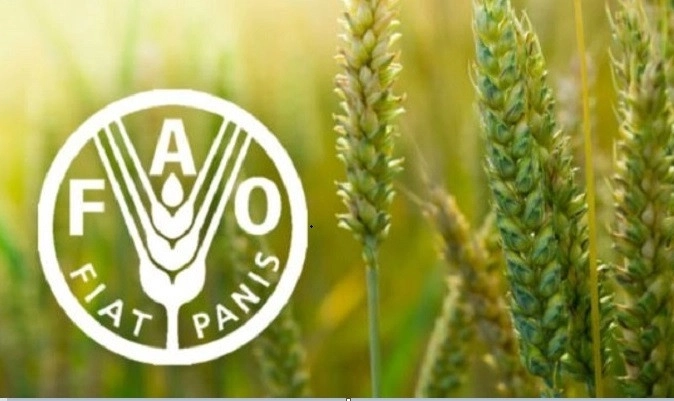Bangladesh third largest food importer in world

Bangladesh imported 100 million tonnes of food products from the world market in 2021 to become the third largest importing country globally, says the UN Food and Agriculture Organization (FAO).
Wheat, edible oil and milk powder still account for the largest share of the country’s food import expenditure, according to the FAO State of Food and Agriculture 2023 released recently.
In 2021, Bangladesh produced around 93.3 million tonnes of agricultural products, it said.
Bangladesh has ranked among the top 10 countries that produce 22 agricultural products, including rice, lentils, potatoes, onions, tea, as well as different types of fruits, according to FAO.
Citing high prices of import-dependent food products in Bangladesh, FAO says per capita consumption of nutritious foods such as cooking oil, meat and milk is the lowest.
“People of these countries eat less than most of the countries in the world.
However, the people of the country are in a good position in terms of per capita consumption of food products such as rice, vegetables, fish and fruits produced in the country. People of Bangladesh are moving towards per capita food energy or calorie consumption,” added the report.
Agriculture Minister Muhammad Abdur Razzaque said the government has taken initiatives to increase the production of import-dependent agricultural products.
“New varieties of edible oil, onions and pulses are being introduced and farmers are being given incentives to increase production. We hope Bangladesh’s dependence on these imported products will decrease,” he said.
As per the FAO report, the position of Bangladesh in the export of food products is at the bottom.
“China is the top importer followed by the Philippines. And the top five countries in the world in terms of food exports are the USA, the UK, Germany, China and France respectively. In this regard, the position of Bangladesh is at the very end,” added the report.
According to FAO, Bangladesh exported food products worth US$9.75 lakh in 2022. Of course, half of it is frozen fish, including shrimp and marine fish.
Apart from this, fruits and vegetables, food grains like rice and maize, meat, edible oil, ghee, honey and dairy products are exported. However, most of these products are exported to expatriate Bangladeshi buyers. These products are not exported much to the international market or multinational companies.
According to the FAO report, Bangladesh’s dependence on food imports from the world market is increasing. In 2010, while Bangladesh imported 9.3% of its total food demand, it increased to 11.2% in 2022.
Imports of rice, wheat and edible oil are continuously increasing during this period. However, due to the dollar crisis, rice has not been imported this year compared to last year. Imports of wheat also fell by about 30%.
According to the report, every person in the world consumes 2,978 calories or food energy per day on average. In Asia, the average consumption is 2,931 calories.
Per capita food energy consumption in Bangladesh is 2,614 calories. Of the total food energy, 1,288 calories come from rice and wheat or food grains.
Then there are 203 calories from edible oil, 83 from sugar, 94 from fruits and 175 from potatoes. A Bangladeshi consumes only 20 calories from meat, 55 calories from milk and eggs, 40 calories from soft drinks and 52 calories from fish.
Regarding food import, former Bangladesh Bank Governor Dr Atiur Rahman said Bangladesh is no exception as most developing and certainly developed countries are dependent on imported foods.
“However, the country faces uncertainty due to fragile external market with limited foreign exchange to import necessary foods like wheat, vegetable oil, infant food etc. Also, sudden depreciation of Bangladesh’s currency taka against US dollars and Euros has pushed up the domestic prices of these imported foods. Hence the ‘imported inflation’ has cascading effects on prices of domestically produced food as well,” he told the Daily Sun.
“Unless we bring back macroeconomic stability with less volatility in the exchange rate and rising foreign exchange reserve to support import of essential foods, it may not be very easy to bring down the rate of food inflation by focusing only on the tightening of monetary policy. Besides stabilising supply chains of these imported foods, the government and central bank must further incentivise to enhance domestic production of the same or their close substitutes,” added the development economist.
He said the domestic production of spices, including onion, ginger, garlic and turmeric, was substantially improved by providing low-cost agricultural credit to farmers with a subsidised rate of interest of only 2-4%.
Source Link: https://www.daily-sun.com/post/727237














